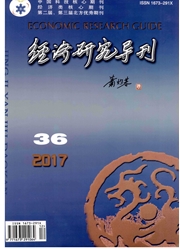

 中文摘要:
中文摘要:
讨论由一个供应商和一个零售商组成的简单两级供应链系统中,建立了零售商库存决策模型,在满足自回归模型AR(1)的需求过程条件下,定量分析了自回归系数和提前期对牛鞭效应的影响。指出对每个提前期,牛鞭效应度量能达到最大值,并找出满足该值的自回归系数范围,因而修正了文献[5]给出的自回归系数对牛鞭效应定理及证明;当自回归系数为正值时,牛鞭效应会发生,并随提前期的增大而增强;当自回归系数为负值时,牛鞭效应不会发生,且提前期对它的影响不明显。结果为零售商减小牛鞭效应提供了一定的指导意义。
 英文摘要:
英文摘要:
This paper discusses the impact of autoregressive coefficient and lead time by retailer’s inventory policy on the bullwhip effect with AR(1)demand process in a simple two-stage supply chain system consisting of a single retailer and a single supplier.It presents the proposition of the impact of autoregressive coefficient and lead time on the bullwhip effect.It shows that the bullwhip effect will reaches the maximum for each lead time and finds the range of the autoregressive coefficient for the value.Therefore,it revises proposition 5 of literature [5].Moreever,it presents that the bullwhip effect always occurs when the autoregressive coefficient is positive and changes intensively with the increasing of lead time;the bullwhip effect does not occur when the autoregressive coefficient is negative.The results will possess some guiding significance for retailer to reduce the bullwhip effect..
 同期刊论文项目
同期刊论文项目
 同项目期刊论文
同项目期刊论文
 Coordination of outsourced operations at a third-party facility subject to booking, overtime, and ta
Coordination of outsourced operations at a third-party facility subject to booking, overtime, and ta Optimal policies in hybrid manufacturing/remanufacturing systems with random price-sensitive product
Optimal policies in hybrid manufacturing/remanufacturing systems with random price-sensitive product Forecast and Rolling Horizons under Demand Substitution and Production Changeovers Analysis and Insi
Forecast and Rolling Horizons under Demand Substitution and Production Changeovers Analysis and Insi On consensus of group decision making with interval utility values and interval perference orderings
On consensus of group decision making with interval utility values and interval perference orderings A tabu search algorithm with solution space partition and repairing procedure for cyclic robotic cel
A tabu search algorithm with solution space partition and repairing procedure for cyclic robotic cel Social responsibility allocation in two-echelon supply chains: Insights from wholesale price contrac
Social responsibility allocation in two-echelon supply chains: Insights from wholesale price contrac Optimal acquisition and production policy in a hybird manufacturing/remanufacturing system with core
Optimal acquisition and production policy in a hybird manufacturing/remanufacturing system with core Optimal Manpower Planning Decision with Single Employee Type Considering Minimal Employment Period C
Optimal Manpower Planning Decision with Single Employee Type Considering Minimal Employment Period C Optimal Solution Structure for Multi-period Prodution Planning with Returned Products Remanufacturin
Optimal Solution Structure for Multi-period Prodution Planning with Returned Products Remanufacturin 期刊信息
期刊信息
